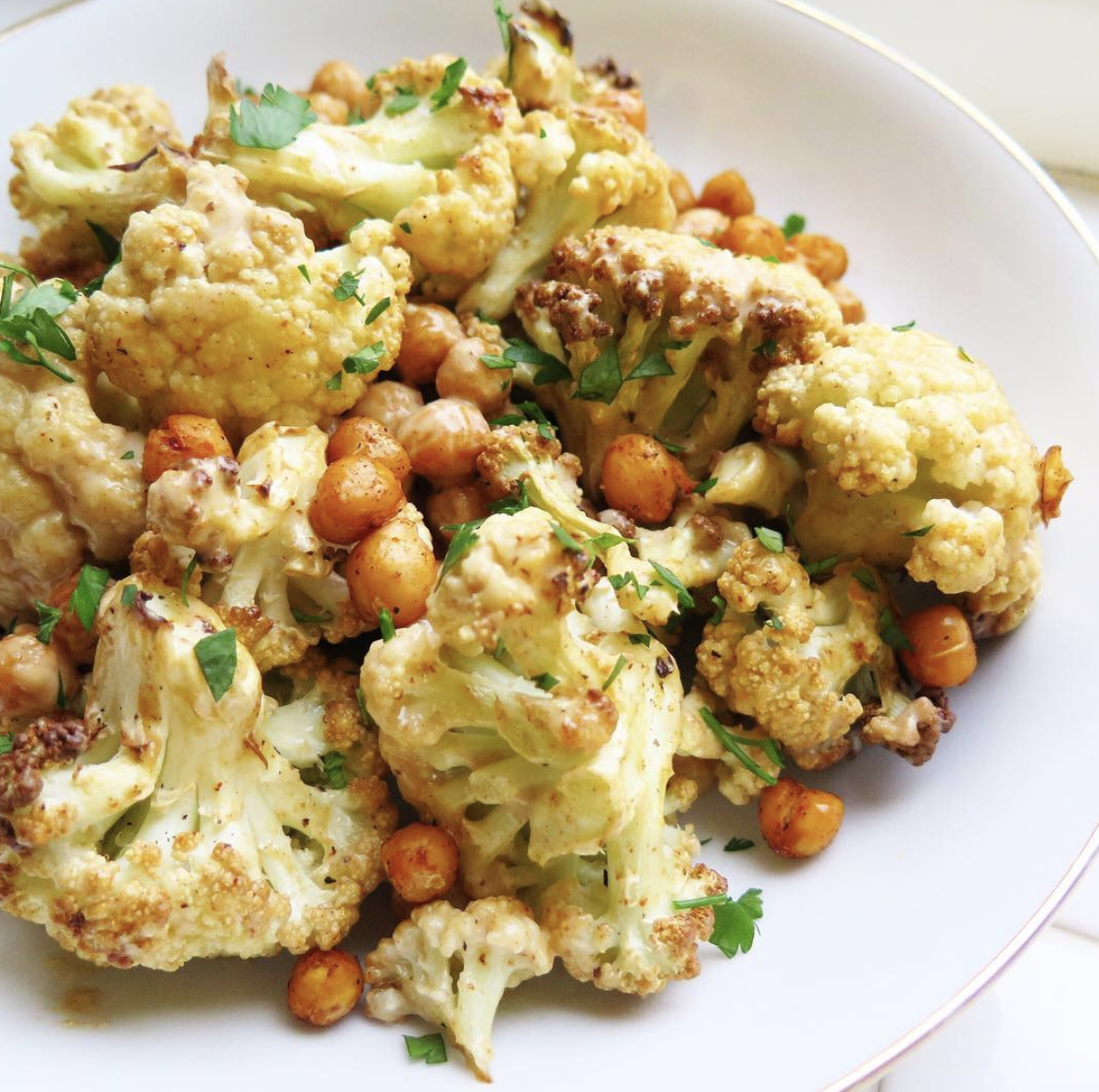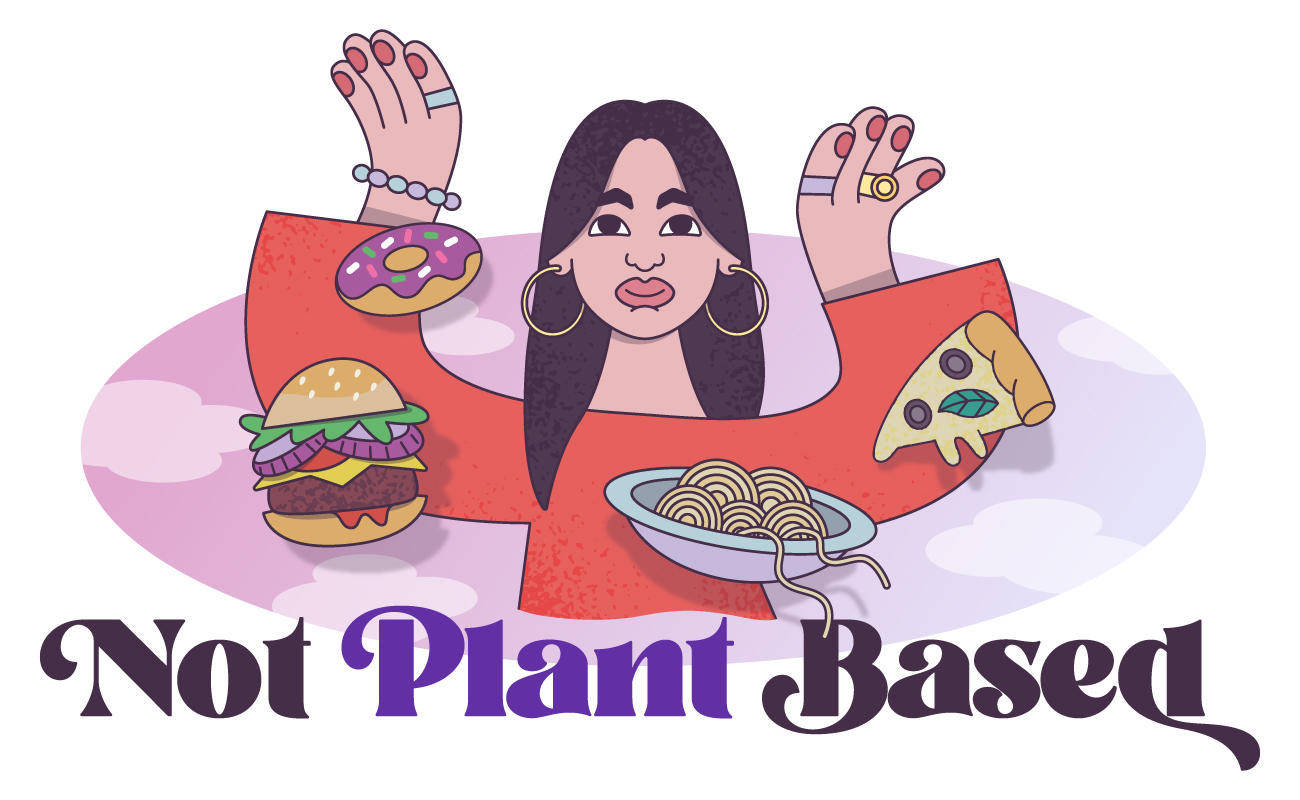
For some reason, when people realise that I am a meat eater, or that I have a blog named Not Plant Based, they assume that I do not care about the environment. They think that I laugh when I hear about little seabirds and their bellies full of plastic, and about the growing unpredictability of the weather causing people across the world to lose their homes if they’re lucky and their lives if they are not – but this could not be further from the truth. Global warming terrifies me. It makes me question whether I want to bring children into such an awful, unsustainable world and it has caused me many sleepless nights since my high school geography teacher made all his students watch Al Gore’s An Inconvenient Truth.
My anxiety spreads beyond the planet – as you’ll know if you’re an avid reader of this blog – and this wobbly mental health contributed to an eating disorder I had years ago. This eating disorder, and yearning to be skinny, was the reason for a 6-month spell of veganism, not the diet’s supposed positive impact on the environment, however. When I was unwell, I was mostly concerned with how to lose weight, which a representative from PETA during a phone call confirmed a vegan diet could do for me.
Veganism can be a wonderful thing for many reasons, the most notable being the ethics of not wanting to kill animals, but another is for its supposed sustainability, meaning the quality of not being harmful to the environment or depleting natural resources, and thereby supporting long-term ecological balance. Although this was not, at the time, the motivation for me turning vegan, it might be why in 2018, 150,000 people took part in Veganuary and why the number of vegans has increased 160 per cent over the past 10 years.
But is it true that going vegan can help the planet?
Researchers at the University of Oxford found that cutting meat and dairy products from your diet could reduce an individual’s carbon footprint from food by up to 73 per cent, and if everyone stopped eating these foods, they found that global farmland use could be reduced by 75 per cent. The Business insider reported that an ever-growing global population poses serious problems to us humans, one of which is agriculture. In the long term, the amount of agricultural land currently on Earth will be nowhere near enough to supply everyone with sufficient food, which is a terrifying thought.
However, researchers from six US universities including Cornell, found that although we might assume that the vegan diet is the most ethical, it’s actually not as sustainable as you might think. Diets with small amounts of meat, as well as lacto-vegetarianism (diet that includes vegetables as well as dairy products such as milk, cheese, yogurt, butter, ghee, cream, and kefir, but excludes eggs) and ovo-lacto-vegetarianism (same but with eggs), can feed more people, therefore making them more environmentally sustainable. “The reason for this is simple: the vegan diet leaves too many resources unused. Different crops require different types of land for an adequate yield. Very often nothing can be cultivated on standard pastureland due to the fact that the soil doesn’t provide the necessary nutrients.”
According to the Guardian, decades of research has shown that medium levels of livestock grazing, rather than none at all, are better for the health, productivity and biodiversity of the land, and when managed well, can prosper.
Don’t worry if you now feel duped into consuming a mountain’s worth of falafel in the name of the planet, because it is indeed true that people in high-income countries can do much to reduce their dietary impact on the world. One example is to reduce the amount they waste, as food waste accounts for up to 50% of total production globally and 7% of total greenhouse gas emissions. But don’t think that going vegan will help solve all the world’s ills, because the reality is just a little more complicated than that. Researchers actually found that veganism and regular, substantial meat consumption diets could lead to severe food shortages. It’s also important to acknowledge that you can have a vegan diet that impacts the planet positively, but also negatively too, depending on what you’re consuming.
As an article in the Independent suggests, the best start we can make when adjusting our diets to help the planet is to start by asking “where has this food come from”. Filling your shopping baskets with the fruits of the world, for example, is far worse for the environment than eating lamb chops that come from a farm a few miles down the road.
Let’s explain this by focusing on the avocado (which btw, might not even be vegan after all), whose prices have been pushed up so much by Western demand that they’ve become unaffordable to those who depend on them in their country of origin. Kenya – the world’s sixth largest exporter of the fruit – had to go as far as to ban the exportation avocados, because the country’s supply is at risk. The Agriculture and Food Authority said that the average price of a 90kg-bag of avocados has reached 2,560 Kenyan shillings (£18), the highest since May 2014. The Tab added that often “the areas in which these avocados are grown are water-scarce and given the enormous quantities of water needed for irrigation (25 million cubic metres annually), this has a detrimental effect on the environment. As the demand for avocados has increased, so too has deforestation and pesticide use.” Local populations have suffered as a direct consequence of this, from the effects of water pollution as well as respiratory and digestive diseases. Coupled with the air miles of the avocado, the water-related environmental consequences of its production, are plain and clear to see. Something to think about if you have replaced your bacon sarnie for avo on toast.
When it comes to helping the planet, it’s ignorant to think that tagging #vegan in your Instagram bio is going to do much. Sustainability spreads beyond our food choices and weaves into all aspects of our life. There’s no point wagging the finger at non vegans if the gram of cocaine you snort destroys four square metres of rainforest and if it cost the British economy around £15bn a year in health and crime bills. The same is true for if you don’t buy your fashion sustainably. Global News have said that “the fashion industry is the world’s second-largest polluter, after oil”, and that the average t-shirt uses 400 to 600 gallons of water to produce (that’s equivalent to seven to 10 full bathtubs); a pair of jeans uses 1,800 gallons of water (that’s about 6,800 one-litre bottles). The fashion industry also uses 1,600 chemicals in their dyeing processes, only one per cent of which have been approved by the Environmental Protection Agency. Not to mention the ethics of who makes our clothes, in what conditions and how little they are paid to do so.
Eleanor O’Leary, otherwise known as the Better Brand Consultant, thinks: “I think Sustainability across all areas of consumerism – not just the food industry – is getting a lot of attention right now and rightly so. 2018 has been the year of ‘ocean plastic’, with Blue Planet 2 playing no small part in kickstarting the collective awareness around our throw away culture. Follow that with a ‘Veganuary’, a threat of a UK ‘latte levy’, and the #whomademyclothes campaign, and you have a nation of people taking a deeper look at all aspects of their consumption habits.
“However, when it comes to the topic of sustainable food, my concern is that we are increasingly influenced by an online culture, and that ‘Sustainability’ as a trend has the potential to attract the same pitfalls as we saw within the #eatclean movement ie a sense of ‘worthiness’ and as a result, a culture of online shaming. When it comes to sustainable food,we can’t ignore that there is a price tag attached to organic / ethically sourced / ‘natural’ produce, which means that sadly “eating well” it’s not always as accessible as it should be. So it’s really important to acknowledge that you do what you can, and that any small habit change you make can, whether that’s meal planning to reduce food waste or cutting down on the plastic cups, bags or straws, attributes to a greater good. And once you become more mindful about one habit, it’s easier to start looking at other habits that you could change ie that weekly lunchtime visit to Zara which results in a dress you only wear once, or leaving your TV on when you’re not watching it.”
Jamie Lee Curtis’s words in his Vice 2014 article about how there is nothing pretentious about being a vegan, put best my thoughts on food sustainability: “There is no way of living in the modern world without doing morally reprehensible things on a daily basis. What I’m trying to say is that I am a piece of shit. And so are you. And I don’t care what you eat. You can eat whatever, whenever, and however the fuck you want.”
And that’s the point: I don’t care about what you eat, so you shouldn’t care about what I eat. If you are trying to alter your diet to improve yourself and the world around you, good for you, but don’t berate others who might have researched more thoroughly than you and who are trying to be sustainable in a slightly different way. For me, I am trying to live more sustainably everyday, but it is a difficult and slow process when you are on a low income and you live in an area where local produce is hard to come by cheaply. I am trying to take advantage of the farm shops nearby, I am trying to take note of where my food comes from, spend more on it and buy my clothes vintage…but Rome wasn’t built in a day. All you can do is try your best and try not to be a dick about it.




Well said. I am so glad that you fleshed this out. Assuming being vegan equates to being more ethical or sustainable can be detrimental. This is an awesome read for anyone who feels conflicted about eating animal products while also struggling with an eating disorder. Also very helpful for addressing vegans in an honest and factual manner when shame tactics are being used.
i really apreciate what i have read here.
Thanks.
I’m a nutricionist and i try to take off (or at least decrease) all these kind of pressure around ours food habits. I’s importante all people to be awere of what they eat, but this shoud never be a source of pressure or frustration, instead, we should to respect our time and process with food. Best regards from Chile